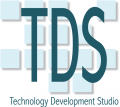Technology Development Studio (TDS) (Einrichtung)
übergeordnete Einrichtungen:Max-Planck-Institut für Molekulare Zellbiologie und Genetik (MPI-CBG)

Kontakt
| Web: | https://www.mpi-cbg.de/services-facilities/core-facilities/technology-development-studio-tds/services/ | |
| E-Mail: | ||
| Telefon: | +49 351 210-2595 | |
| Fax: | +49 351 210-1689 | |
| Adresse: | Max-Planck-Institut für Molekulare Zellbiologie und Genetik (MPI-CBG), Technology Development Studio (TDS), Pfotenhauerstr. 108, 01307 Dresden, Germany | |
| Partner: | Max-Planck-Institut für Molekulare Zellbiologie und Genetik | |
Beschreibung
The major goal of the High-Throughput Technology Development Studio (TDS) is to provide expertise in assay development towards high-throughput applications and high content screening services (HCS). To this end the HT-TDS has state-of-the-art technologies for cell-based screening such as robotic liquid handling stations, plate readers and several automated microscopes. The services include developing complex automated image analysis pipelines and multi-parametric analysis of high content imaging applications.
Expertise:
Assay and technology development for high-content screening (lab automation, siRNA transfection, chemical screening, automated microscopy, live cell imaging, image analysis, data management, mutli-parametric statistics), robotic liquid handling processes (remarrying of libraries, hit picking, normalisation)
Interests
- Application of automated image-based screening at subcellular resolution
- Analysis of kinetic parameters of biological processes in medium-throughput mode with live cell automated microscopy
- Identification of new gene functions and phenotypes after depletion or knock-down
- Identification of new chemical or biological entities that induce equivalent phenotypes
- Using chemico-genomic approaches to discover mode of action of compounds (comparison RNAi and chemical screens)
Technologies:
- Automated confocal microscopy
- Automated widefield microscopy
- Fluorescence emission
- Fluorescence polarisation
- HTRF (homogeneous time resolved fluorescence)
- Alpha ELISA
- Luminescence
- Absorbance
- Acoustic dispensing
- Electroporation
- Automated liquid handling (contact and free dispense)
Services:
1. Complete execution of high-throughput / high-content screening projects
- Assay transfer (adaptation of the bench experiment to a screenable assay)
- Automation
- Validation
- Screening
2. Provision of individual processes performed by TDS-staff:
- Transfection
- Liquid handling for all sorts of applications (reformatting & replication of libraries, normalisation of products to identical concentrations, cherry/hit picking, preparation of dilution series, etc.)
- Measurements in homogeneous solution with plate readers
- Measurements in cells or tissues with automated microscopes
3. Assay Development:
- Assay design: full service cell-based high-content assay design and development using multi-parametric readout to tackle your specific biological questions
- Assay optimisation: cost effective process optimisation for high-throughput screening, down-scaling, transfection optimisation, work-flow optimisationAssay validation: validation of assays according to well-established standards
- Image and statistical analysis
- Development of image analysis solutions for imaging projects (low and high throughput microscopy)(CellProfiler, MotionTracker, Acapella, Matlab, BioApplications)
- Development of statistical analysis solutions for biological questions (R, KNIME, Matlab)
4. User Facility:
- After an introduction and initial training, the TDS provides individuals with the opportunity to perform automated experiments or projects on their own with the instruments provided in the User Facility
Geräte
 Geräte anzeigen (20)
Geräte anzeigen (20)
Dienstleistungen
 Dienstleistungen anzeigen (2)
Dienstleistungen anzeigen (2)
Zugehörigkeit
übergeordnete Einrichtungen
| Name | Typ | Aktionen |
|---|---|---|
| Max-Planck-Institut für Molekulare Zellbiologie und Genetik (MPI-CBG) | Institut |
Letztes Update
Letztes Update am: 29.10.2018 09:09

